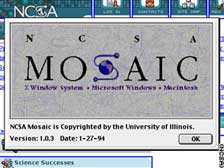|
Archive: August 4, 2005
|
BusinessWeek had a great cover story: How to Fix the Tort System. If you're a regular reader you know this is a subject near and dear to my heart.
BW offers a four-point plan:
- Pay for Performance. "Solution: Reverse the economics of class-action settlements. Plaintiffs' lawyers should be paid after victims collect their money -- not before." This has been my favorite; make behavior which is undesirable unprofitable, and people won't engage in it. Even lawyers.
- Penalties that Sting. "Simply rewriting the rules only solves part of this problem, though. An equally important step is for judges to rise to the challenge and use their disciplinary powers. For too long, a cozy, protect-the-guild mentality has protected exploitative attorneys from serious punishment." Okay, I'll buy that. But I think (1) is a better driver than (2). {People don't wait at green lights because they'll get a ticket, they wait because otherwise they'll hit other cars.}
- Curb the Duplication. "The first [idea] would be eliminating punitive damages for injuries caused by products that have been approved by regulators. A second idea is giving judges explicit authority to reject class actions that duplicate ongoing regulatory initiatives." This helps businesses by eliminating multiple jeopardy.
- Exiting the Tort System. "These three changes would solve many of the tort system's genuine problems, but not all of them. There are rare issues that need to be removed from the courts -- with all of their elaborate procedural rules -- and directed into specialized administrative tribunals." So be it.
These are good suggestions, but I think they missed one, too:
- Loser Pays. Make the party which brings a frivolous suit pay the legal expenses of the defendant, and there will be fewer frivolous suits, because there will be fewer lawyers willing to take such suits on contingency. Make the party which loses a legitimate suit pay the legal expenses of the plaintiff, and there will be more reasonable settlements, resulting in lower legal fees for the representing lawyers.
I sure hope something changes. This is the biggest problem we have in American business today.
|
|
The Ole filter makes a pass...
 CNN published an interesting survey: The Internet Transforms Modern Life. Indeed. The thing I like best about it is the screen shot of NCSA Mosaic, the forerunner of all modern browsers, dating from January of 1994. I ran that very version, I think; I sure recognized the logo. Unbelievable how much things have changed; I'm guessing very few people had even heard of the Internet in 1994. CNN published an interesting survey: The Internet Transforms Modern Life. Indeed. The thing I like best about it is the screen shot of NCSA Mosaic, the forerunner of all modern browsers, dating from January of 1994. I ran that very version, I think; I sure recognized the logo. Unbelievable how much things have changed; I'm guessing very few people had even heard of the Internet in 1994. 
 Julian Beever is a pavement artist. Kind of like Lance Armstrong is a bike rider. Wow. These drawings absolutely look three-dimensional. [ Thanks, Justin ] Julian Beever is a pavement artist. Kind of like Lance Armstrong is a bike rider. Wow. These drawings absolutely look three-dimensional. [ Thanks, Justin ] 
The Economist reports London pips Paris at the finish line, regarding the 2012 Summer Olympic Games. "In one of the closest contests in the history of the modern Olympics, London has been chosen to host the 2012 games, edging out Paris in the final round of voting. After Athens’s soaring costs and its struggles to get the venues ready in time for the 2004 games, should Londoners really be celebrating?" The economics of these huge events is fascinating and complicated. That there is a business case for them at all equally so. Personally I'm glad because they're fun, even if they're not profitable. 
This is pretty interesting: Macworld reports Apple making big inroads in business with OS X. "The report found that 17 percent of businesses with 250 employees or more were running Mac OS X on their desktop computers. Twenty-one percent of businesses that had 10,000 or more employees used Mac OS X on their desktop." Those numbers seem really high. I wonder if I even believe them? But I do believe the trend. 
Ottmar Liebert reviews Wired's The Digital Devolution. "Great article in Wired about music and sound. Simple, this is what democracy does. The brilliant and benevolent despot will always reach greater heights, but then people have to suffer through generations of not brilliant and not benevolent despots... Come to think of it...not a great article in Wired, merely interesting, and probably written by somebody old enough to have fond memories of the olden days..." I love it. Where but on a blog would you read that? 
BTW, OL's Winter Rose album will be released October 11th. Mark your calendar.
  Cybele goes out to sea - and sees blue whales! And takes pictures! Awesome!! Whales are just wonderful, aren't they? Cybele goes out to sea - and sees blue whales! And takes pictures! Awesome!! Whales are just wonderful, aren't they? 
See also "The Man"'s gallery...
(My family and I spent a week at Orcas Island, and yes, we went whale watching and yes, we saw whales. Man was that cool. And yes, we took pictures. Stay tuned...)
Joel Spolsky hits a high note. "The real trouble with using a lot of mediocre programmers instead of a couple of good ones is that no matter how long they work, they never produce something as good as what the great programmers can produce." I was getting worried about Joel, seemed like he was too busy extolling the virtues of .NET to write anything good anymore. (But I understood because .NET is very time consuming to understand, let alone write about :) Anyway I agree with this piece and like it a lot, and find it completely 100% IN CONFLICT with Joel’s apparent liking for .NET. I link, you decide. 
Paul Graham, like Joel, bats disgustingly close to 1.000; he ponders what business can learn from open source. He makes some great points, but I didn't think it was as insightful as some of his missives. It defies easy synopsis, please read it for yourself. 
 I like the new Mighty Mouse, looks cool. I like the new Mighty Mouse, looks cool.
I think I need one for icebaby :)
But...why does it have a tail. Should be wireless, eh? 
Yahoo listed the top ten movie lines of all time. [ via Halley ] They have a good list, but they missed the best ones: 
-
"You can't handle the truth." (A few good men) How could you leave this one out?
-
"You had me at hello." (Jerry McGuire) My favorite. What can I say, this is just a great line.
-
"When you realize you want to spend the rest of your life with somebody, you want the rest of your life to start as soon as possible." (When Harry met Sally) Shirley's favorite. Deep, but hard to remember exactly.
Finally, today's new buzzword is Yak Shaving: 
Any seemingly pointless activity which is actually necessary to solve a problem which solves a problem which, several levels of recursion later, solves the real problem you’re working on.
So that’s what it’s called. I always thought it was called “programming” :-)
P.S. Apparently the nerd usage of this term dates from the MIT AI Lab, after a Ren and Stimpy episode, but I like this etymology better.
P.P.S. And then of course there is the Yak Shaving Razor.
|
Estimating
I am really good at estimating. By which I mean, I can estimate anything, even if my estimates are not accurate. If you ask me for an estimate – on anything – I can give you one. I never let absence of facts stand in my way.
However, many people are horrible at estimating. You ask them for an estimate – on anything – and they can’t do it. They don’t know where to start. Even if they should be able to estimate something, based on their experience and knowledge and the availability of facts, they just can’t do it. It isn’t that they don’t want to commit – they might say that’s why, though – it is because they honestly can’t make an estimate.
In the past I have found this frustrating. I think to myself, “if I had your experience and these facts, I could form an estimate immediately”. Experience has taught me that getting mad and putting pressure on someone to give you an estimate when they think they can’t doesn’t help. (This is especially true if the “someone” in question is your wife or daughter :)
But recently I’ve found a great trick. You can help people form estimates by using binary searching. People are much better at comparisons than they are at estimating. This is true even though all you need to do to form an estimate is iterative comparisons.
Binary searching
The technique of binary searching is well known in computing, it is part of every freshman computer class. It is a routine technique; suggesting that a programmer use binary searching is like suggesting to a fish that they swim. However non-nerds might not be familiar with the technique so here’s a quick example.
Pick a number between 1 and 8. Got it?
Okay, I can guess your number with three questions. Here we go:
#1) Is your number bigger than 4?
Yes - #2) Is your number bigger than 6?
Yes – #3) Is your number bigger than 7?
Yes – your number is 8!
No – your number is 7!
No – #3) Is your number bigger than 5?
Yes – your number is 6!
No – your number is 5!
No – #2) Is your number bigger than 2?
Yes – #3) Is your number bigger than 3?
Yes – your number is 4!
No – your number is 3!
No – #3) Is your number bigger than 1?
Yes – your number is 2!
No – your number is 1!
See how it works? Each question is a comparison, and each result divides the number of possible answers in half.
Estimating by binary searching
Okay, so let’s say you want someone to give you an estimate. Instead of asking them directly for the estimate, ask them to do a series of comparisons, each of which cuts the possible answers in half. Pretty soon you have a reasonable estimate. Here’s a real example:
You’re talking to a pool repairman and you want to know how much a particular repair will cost. He says he has no idea. But you know he should have a good idea, based on having been a pool guy for years. Here’s the conversation:
You: Do you think this will cost more than $100,000?
(NOTE: start with an obvious upper limit.)
Him: What! Of course not.
You: Whew! Okay, well, will it cost more than $50,000?
Him: No way. Not nearly that much.
You: Okay, well, will it cost more than $25,000?
Him: No, this isn’t that bad. I didn’t mean to scare you, it will only take a few days to fix.
You: Okay, well, will it cost more than $10,000?
(NOTE: pick round numbers!!!)
Him: Hmmm…. No, it won’t cost that much.
You: Will it cost more than $5,000?
Him: Let me think. No, I don’t think so. I did a job a couple of weeks ago which was just like this, and it was less.
(NOTE: Resist the urge to say “why didn’t you just say that in the first place”. Don’t snatch defeat from the jaws of victory :)
You: Okay, so will it be more than $2,000?
Him: Oh, yeah, I have to get a new framitz, and my guys have to decombobulate the qwork, it will be more than that.
You: Yeah, I was afraid of that. Okay, well will it be more than $3,000?
Him: It might be. I’ll try to stay under that, but with these things you never really know how much they’ll cost.
See how it works? This guy really knew the right estimate was “about $3,000”, but he didn’t know he knew, and he didn’t know how to get there. By binary searching with comparisons you helped him unearth his knowledge.
Be careful always to phrase each question as a comparison. Don’t ask “will this be about X?”, instead ask, “will this be more than X?” I don’t know why, but humans do better with “more than” -type questions.
This technique even works within yourself. Let’s say you have a project to do. (You need to decombobulate a qwork.) You can’t form a decent estimate. Ask yourself – will it take more than a month? More than two weeks? More than a week? More than two days? More than eight hours? Etc. You know more than you know!
I hope you find this as useful as I have!
(Did you find it more useful than... just kidding :)
|
Return to the archive.
|


|




